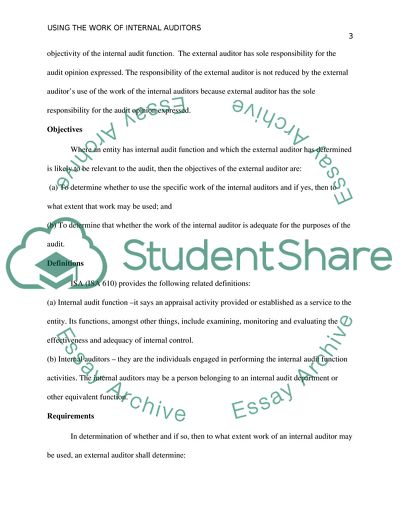Cite this document
(Using the work of an internal auditor Essay Example | Topics and Well Written Essays - 2250 words, n.d.)
Using the work of an internal auditor Essay Example | Topics and Well Written Essays - 2250 words. https://studentshare.org/finance-accounting/1823548-using-the-work-of-an-internal-auditor
Using the work of an internal auditor Essay Example | Topics and Well Written Essays - 2250 words. https://studentshare.org/finance-accounting/1823548-using-the-work-of-an-internal-auditor
(Using the Work of an Internal Auditor Essay Example | Topics and Well Written Essays - 2250 Words)
Using the Work of an Internal Auditor Essay Example | Topics and Well Written Essays - 2250 Words. https://studentshare.org/finance-accounting/1823548-using-the-work-of-an-internal-auditor.
Using the Work of an Internal Auditor Essay Example | Topics and Well Written Essays - 2250 Words. https://studentshare.org/finance-accounting/1823548-using-the-work-of-an-internal-auditor.
“Using the Work of an Internal Auditor Essay Example | Topics and Well Written Essays - 2250 Words”. https://studentshare.org/finance-accounting/1823548-using-the-work-of-an-internal-auditor.


